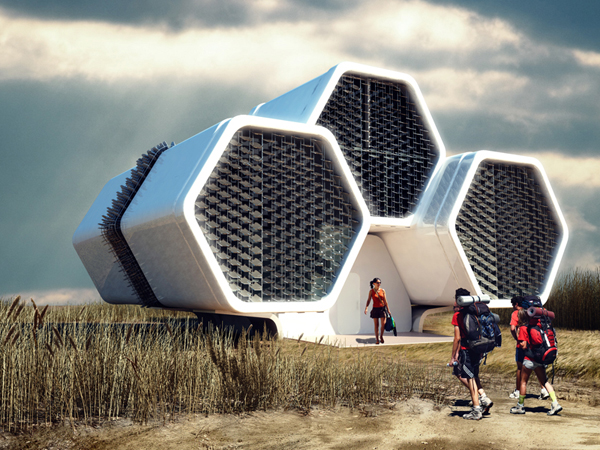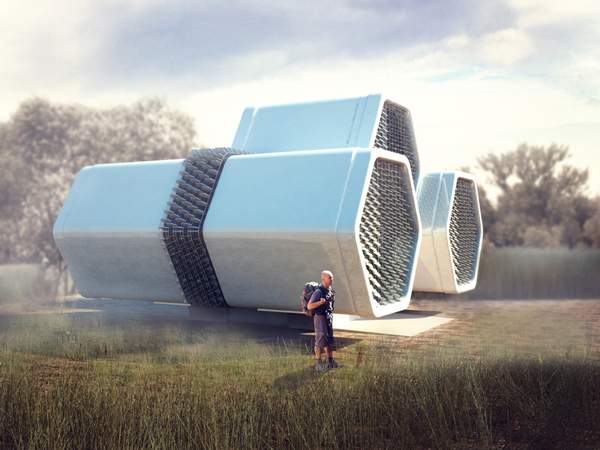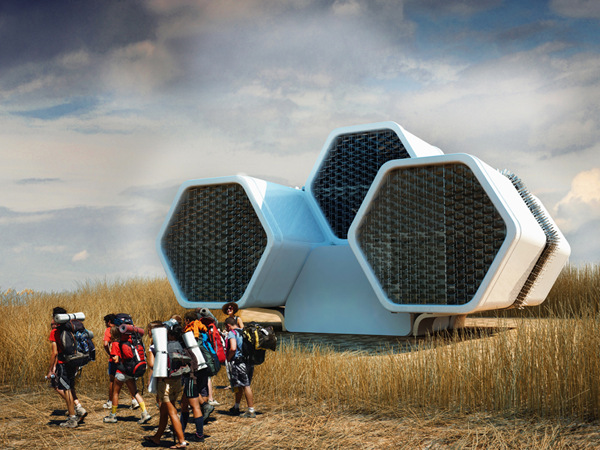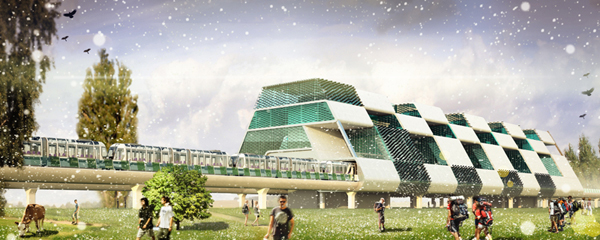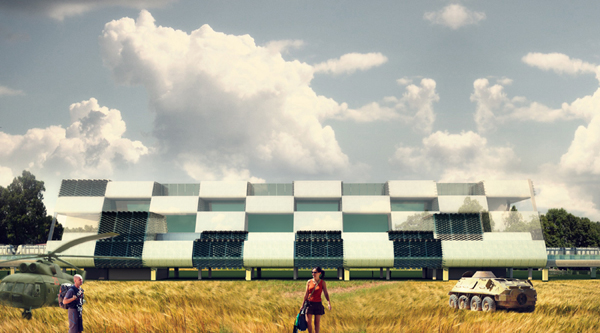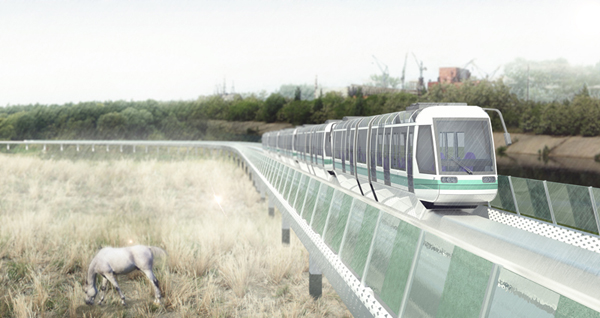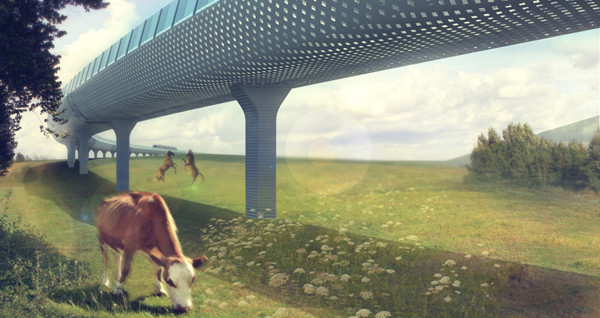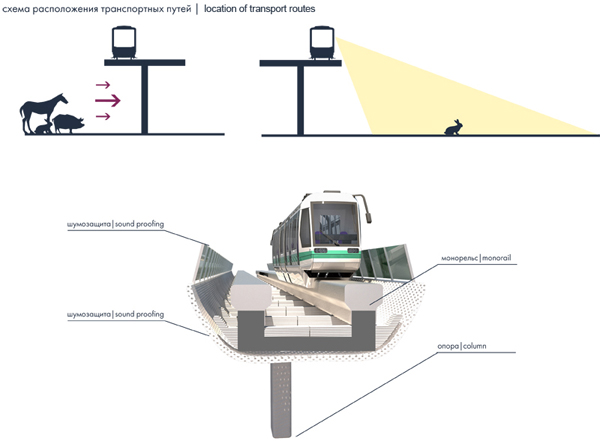The proposed design is intended to become a framework for development of Chernobyl’s exclusion zone through the introduction of modular infrastructural facilities. The idea uses several datascapes, all revealing an increase in plant and animal activity in the area around the nuclear power plant. Paradoxically, the absence of human activity created favorable conditions for several animal and plant species. The proposal focuses on the Ukranian part of the exclusion zone and attempts to reactivate the territory by developing safe infrastructure systems. The structures are intended to straighten scientific activity in the area, along with environment protection and tourism.
The stations are made of modular, interchangeable units. Entering the station, trains are washed and dried in the decontamination zone. The space between platforms accommodates vertical communications and interactive touch-boxes for booking guided tours. Emergency shower cabins are situated on the first level, along with the decontamination zone. The third level facilitates entertainment and catering services, leaving the fourth level free for housing offices.
Along with the stations, the area is populated with several scattered housing units. Hexagonal modules are assembled in numbers of five, equipped with a kitchen and bathroom. The fifth cell is usually organized as a common area. The hall is used as a decontamination zone.
The project aims to draw attention to the Chernobyl exclusion zone by transforming it into a tourist destination.
